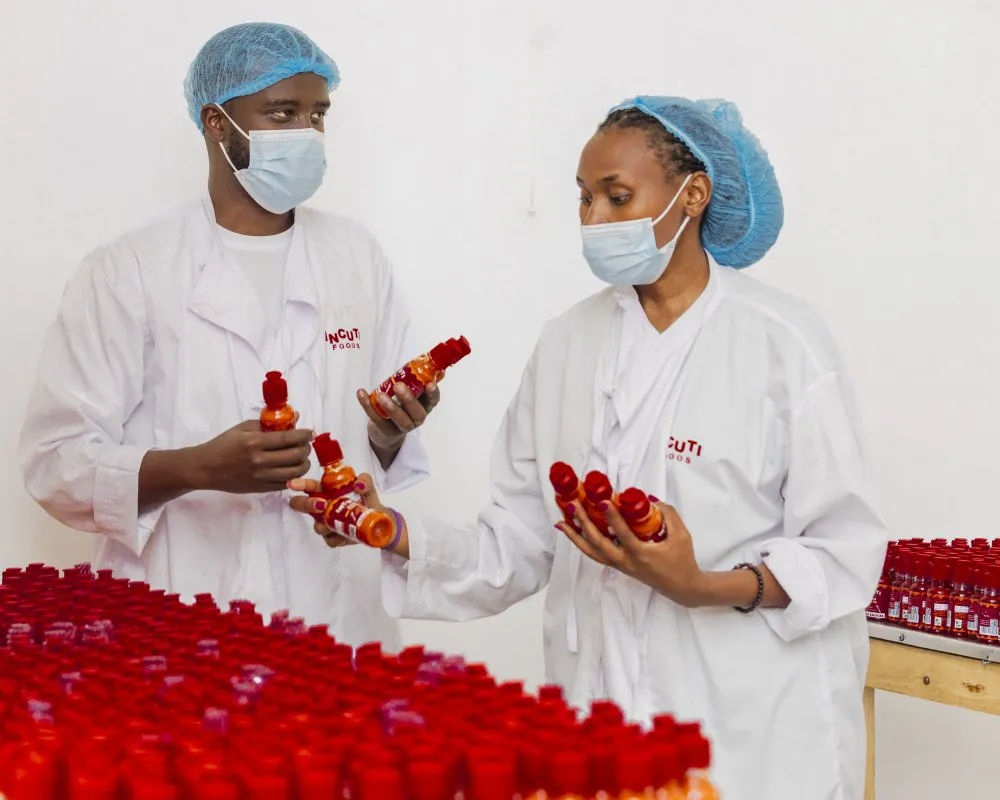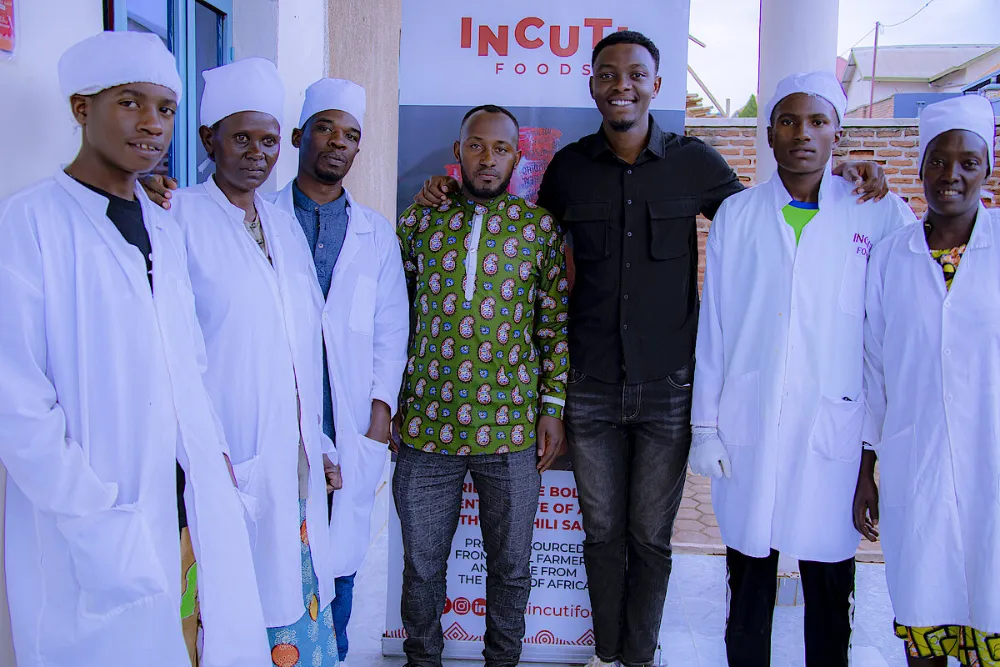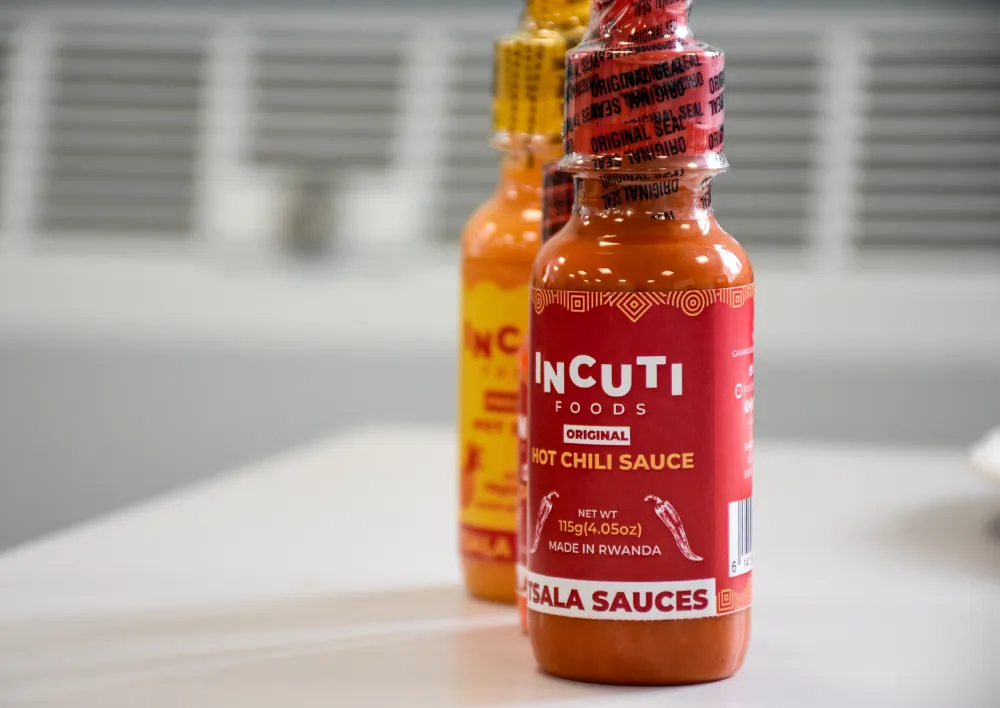
When Tresor Gashonga founded Incuti, a Rwandan business specialising in chilli products, he faced challenges familiar to many African food entrepreneurs: limited technical expertise, barriers to meeting international food safety standards, and difficulty accessing new markets. Without the right certifications, Incuti’s ambitions to expand beyond local shelves seemed out of reach.
That changed in 2024, when Tresor joined the Food Accelerator Roadshow, a project led by NRI in partnership with the Tony Blair Institute for Global Change (TBI). The programme gave him and four other Rwandan food start-ups access to NRI’s scientists and facilities at the Medway Food Innovation Centre (MFIC), as well as training, mentoring and international exposure.
‘Before visiting NRI, we didn’t have the expertise to acquire the certifications we needed to grow’, Tresor pointed out.
Building knowledge, building standards

At NRI, Tresor received intensive training on key aspects of food entrepreneurship including food safety, quality, and sustainable packaging. He also gained insights into UK and EU consumer preferences, where sustainability and health-conscious choices dominate. Crucially, the training empowered Tresor and Incuti to implement full HACCP protocols, introduce traceability procedures in its supply chain, and upgrade its packaging to international standards.
Back in Rwanda, Tresor applied the lessons he had learnt. With continued follow-up support, through online training and advice from NRI staff every few months, Incuti achieved a major milestone. The company applied for and received certification from the Rwanda Standards Board (RSB).
‘The food safety and quality training at NRI was the most valuable part of the visit. It gave us the confidence to set up the systems we needed to operate at an international standard,’ he explained. ‘Thanks to the training and follow-up support, we now hold the Rwanda Standards Board (RSB) mark, which has opened new doors for us.’
Business growth, community impact

The impact was significant. Customers noticed the improvements in product quality, packaging, and brand story, driving up demand for Incuti’s products. In just over a year, the company expanded its workforce from four to 21 staff and began sourcing chillies from 50 smallholder farmers, mostly women.
‘Customers love our improved products and packaging, and that has driven higher demand. We’ve gone from four staff to 21, and we’re now working with 50 small farmers. For us, growth also means lifting up our communities’, Tresor said.
Incuti is reshaping Rwanda’s chilli value chain, by adding value to chillies that were once sold fresh or went to waste. Farmers now have a more reliable buyer in Incuti, local communities benefit from job creation, and Rwanda earns valuable foreign exchange from exports.
A vision beyond Rwanda

Today, Incuti is reaching new markets in West Africa, the USA, and the Middle East, with ambitions to become a global brand. For Tresor, the Food Accelerator Roadshow was not just a learning experience but a turning point in Incuti’s journey.
‘The exposure to European markets showed me that sustainability and health really matter to consumers. That has changed how I think about food innovation. Incuti can now compete internationally, and my vision is to build a global brand,’ he noted.
Looking ahead
To continue scaling sustainably, Tresor believes start-ups like his need access to targeted financing, stronger marketing opportunities, and links to distributors and bulk buyers. But with the foundation built through NRI’s support, Incuti is well-positioned to keep growing, and to play a transformative role in Rwanda’s food system. ‘NRI and TBI gave us the platform to grow. I encourage them to keep collaborating with local entities to solve pressing challenges in food systems, innovation and commerce,’ Tresor advised.

